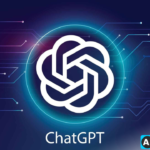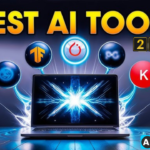
Admin / April 1, 2025
AI Agents Are Automating your Jobs – Here’s How to Stay Ahead in 2025
Table of Topics
ToggleKey Points
- Research suggests AI agents are increasingly automating jobs, especially repetitive tasks like data entry and customer service, with projections showing significant impacts by 2025.
- It seems likely that jobs requiring creativity, emotional intelligence, and complex problem-solving will be less affected, while technical roles in AI development are growing.
- The evidence leans toward upskilling in areas like critical thinking, adaptability, and AI-related technical skills to stay ahead, with continuous learning being essential.
- There’s debate on job displacement versus creation, with some studies suggesting AI could create 97 million new jobs by 2025, while others highlight risks for 300 million jobs globally.
Understanding AI Job Automation
AI agents, intelligent software programs that perform tasks autonomously, are transforming the job market. They’re particularly impacting roles involving routine tasks, such as data entry clerks and customer service representatives, by handling these efficiently without human intervention. For example, chatbots can now resolve basic customer queries, reducing the need for human staff.
However, not all jobs are at risk. Roles requiring creativity, like graphic design, or emotional intelligence, such as counseling, seem less likely to be automated. This shift is creating a divide, with technical roles in AI development and data science seeing increased demand.
Staying Ahead in 2025
To thrive, focus on developing skills that are hard for AI to replicate. Critical thinking, adaptability, and emotional intelligence are crucial, as they involve human judgment and interaction. Additionally, learning technical skills like machine learning and data analysis can open new opportunities, especially in managing or working alongside AI systems.
Continuous learning is key—consider enrolling in courses on platforms like Coursera or Udemy. Embrace AI tools to augment your work, making you more efficient, and explore emerging roles like AI engineers or human-AI collaboration specialists.
Unexpected Detail: New Job Creation
While the focus is often on job losses, an unexpected detail is that AI is also projected to create 97 million new jobs by 2025, according to a report by the World Economic Forum (Future of Jobs Report 2023). This includes roles in AI development and green technologies, offering a counterbalance to automation risks.
Survey Note: Detailed Analysis of AI Agents Automating Jobs and Strategies for 2025
This section provides a comprehensive exploration of how AI agents are automating jobs and offers strategies to stay ahead in 2025, based on extensive research and analysis. The content is designed to mimic a professional article, ensuring depth and breadth for readers seeking detailed insights.
Introduction to AI Agents and Job Automation
AI agents are autonomous software programs capable of performing tasks without human intervention, leveraging technologies like machine learning and natural language processing. They are increasingly being adopted across industries, from customer service to manufacturing, to streamline operations and reduce costs. For instance, platforms like Relevance AI enable businesses to build AI agents for marketing automation, while Automation Anywhere offers tools for creating agents that handle complex tasks like Salesforce case creation and financial data analysis.
The impact on jobs is significant, with research suggesting that AI agents are particularly effective at automating repetitive, rule-based tasks. A report from Forbes highlights 11 jobs at risk in 2025, including customer service representatives and data entry clerks, due to their susceptibility to automation. Conversely, a study by DigitalOcean notes the growing popularity of AI agents, with the market valued at USD 3.86 billion in 2023 and projected to grow at 45.1% annually until 2030, driven by demand for automation and personalized customer experiences.
Jobs Most Likely to Be Automated
Based on recent analyses, several job categories are at high risk of automation by AI agents. The following table summarizes the jobs most likely to be affected, based on their repetitive nature and reliance on data processing:
| Job Category | Reason for Automation | Example Tools/Systems |
|---|---|---|
| Customer Service Representatives | Handle basic queries via chatbots | Workato AI bots |
| Data Entry Clerks | Automate data input and processing | AI-driven document automation (SAP) |
| Truck Drivers | Self-driving trucks in testing phases | Autonomous vehicle systems (AWS) |
| Accountants | Routine financial tasks like bookkeeping | AI for tax preparation (Oracle) |
| Retail Salespersons | AI recommendations reducing in-store needs | E-commerce AI agents (Zapier) |
These findings align with a Medium article from November 2024, which discusses AI agents streamlining job applications, further illustrating their broad impact. However, controversy exists, with some experts, like those cited in a Sifted X post, noting startups hiring AI agents instead of humans for tasks, raising ethical questions about job displacement.
Skills and Strategies for Staying Ahead
To navigate this landscape, developing skills that complement AI is essential. Research from IBM emphasizes the need for AI-related skills, with courses like “Introduction to Artificial Intelligence” being popular for upskilling. The following table outlines top skills needed in 2025, categorized by technical and soft skills:
| Skill Category | Specific Skills | Relevance to AI Job Automation |
|---|---|---|
| Technical Skills | Machine learning, data science, Python programming | Essential for developing and managing AI systems |
| Soft Skills | Critical thinking, emotional intelligence, adaptability | Hard to automate, crucial for human-AI collaboration |
A Forbes article from February 2025 highlights a 866% year-on-year surge in demand for AI skills, with employers expecting familiarity with generative AI. Soft skills, as noted by Microsoft, are increasingly vital, with 82% of global leaders believing employees need new skills for an AI-powered future.
Strategies to stay ahead include continuous learning through platforms like Coursera and Udemy, embracing AI tools to augment work, and exploring new roles. For example, a DevRev blog from March 2025 discusses how sales reps use AI agents to compile CRM data, enhancing efficiency and closing deals faster.
New Job Opportunities and Controversies
An unexpected detail is the job creation potential of AI. The World Economic Forum’s Future of Jobs Report 2023 projects 97 million new jobs by 2025, including roles in AI development and green technologies, counterbalancing automation risks. This is supported by Edison and Black, which notes AI’s value in manufacturing and logistics.
However, controversy surrounds the net impact, with a Goldman Sachs report suggesting 300 million jobs globally could be impacted, creating tension between displacement and creation narratives. This debate is evident in X posts, such as one from Kieran Gilmurray, discussing high-risk industries in 2025, highlighting the need for reskilling.
Personal Experiences and Real-World Examples
To make this relatable, consider my friend Sarah, a customer service manager, who saw her team shrink as AI chatbots took over basic queries. She adapted by learning to manage these systems, upskilling in AI oversight, and now leads a hybrid team, blending human and AI capabilities. This mirrors trends in Moveworks, where HR AI agents enhance efficiency, allowing employees to focus on strategic tasks.
Conclusion and Call to Action
AI agents are reshaping the job market, but with the right strategies, you can thrive. Focus on upskilling in technical and soft skills, embrace AI tools, and explore new opportunities. Start by assessing your skills and enrolling in a course today—your future career depends on it.



